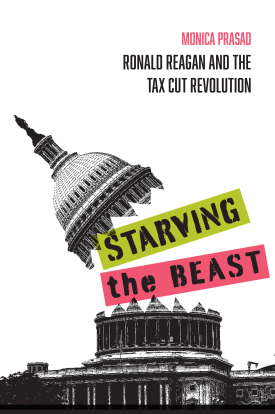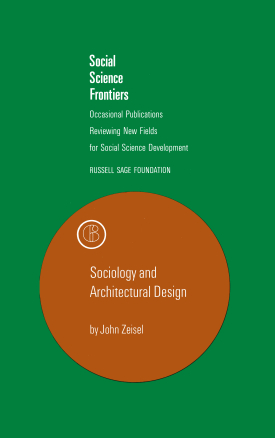People of mixed racial background have some flexibility in how they self-identify. How does a mixed-heritage person’s racial identification influence other aspects of their life? How important are ethnic and racial backgrounds to mixed-heritage people and how do they influence their relationships and family choices? Sociologists Carolyn Liebler and Miri Song will examine the extent to which a person’s race and ancestry responses are associated with their choice of spouse and the racial identification of their children.
Co-funded with the Carnegie Corporation
Restrictive immigration law can have damaging effects on children even prior to birth. Recent findings suggest that SB1070, a punitive immigration bill passed in Arizona in 2010, had a substantial negative effect on birth outcomes of Latina immigrant women. Sociologist Florencia Torche will study the effects of an equally punitive immigration bill passed in Alabama in 2011 to assess generalizability of the effect of such laws on vulnerable populations.
Why do some college seniors make smooth transitions into the labor market while others flounder? While the quantitative literature shows differences in outcomes across class, race, and gender groups, we know little about the processes that produce these differences. Sociologist Judith Levine will conduct a longitudinal qualitative study to examine how students find jobs (or graduate programs) after college. She will investigate differences by class, race, and gender in students’ career aspirations and access to economic, cultural, and social capital.

Golden Years?
About This Book
A Volume in the American Sociological Association’s Rose Series in Sociology
Winner of the 2020 Gerontological Society of America’s Richard Kalish Innovation Publication Award
“Comprehensive, cogent, and carefully researched, Golden Years? provides a window onto the realities, risks, and disparities confronting the burgeoning numbers moving to and through life after age sixty-five. But Deborah Carr also showcases possibilities—ways governments, communities, and families can rewrite the scripts of later adulthood in ways that promote greater equality and life quality. This book is must reading for understanding both aging and our aging society—for individuals, family members, students, scholars, and policy makers. An instant classic!”
—PHYLLIS MOEN, director, Life Course Center and McKnight Endowed Presidential Chair in Sociology, University of Minnesota
“Deborah Carr provides an engaging and clearly written analysis of the key questions and controversies driving social science aging research. Golden Years? is essential reading for everyone from those engaged in this research to students who are being exposed to the topic for the first time.”
—PAMELA HERD, professor, McCourt School of Public Policy, Georgetown University
Thanks to advances in technology, medicine, Social Security, and Medicare, old age for many Americans is characterized by comfortable retirement, good health, and fulfilling relationships. But there are also millions of people over 65 who struggle with poverty, chronic illness, unsafe housing, social isolation, and mistreatment by their caretakers. What accounts for these disparities among older adults? Sociologist Deborah Carr’s Golden Years? draws insights from multiple disciplines to illuminate the complex ways that socioeconomic status, race, and gender shape nearly every aspect of older adults’ lives. By focusing on an often-invisible group of vulnerable elders, Golden Years? reveals that disadvantages accumulate across the life course and can diminish the well-being of many.
Carr connects research in sociology, psychology, epidemiology, gerontology, and other fields to explore the well-being of older adults. On many indicators of physical health, such as propensity for heart disease or cancer, black seniors fare worse than whites due to lifetimes of exposure to stressors such as economic hardships and racial discrimination and diminished access to health care. In terms of mental health, Carr finds that older women are at higher risk of depression and anxiety than men, yet older men are especially vulnerable to suicide, a result of complex factors including the rigid masculinity expectations placed on this generation of men. Carr finds that older adults’ physical and mental health are also closely associated with their social networks and the neighborhoods in which they live. Even though strong relationships with spouses, families, and friends can moderate some of the health declines associated with aging, women—and especially women of color—are more likely than men to live alone and often cannot afford home health care services, a combination that can be isolating and even fatal. Finally, social inequalities affect the process of dying itself, with white and affluent seniors in a better position to convey their end-of-life preferences and use hospice or palliative care than their disadvantaged peers.
Carr cautions that rising economic inequality, the lingering impact of the Great Recession, and escalating rates of obesity and opioid addiction, among other factors, may contribute to even greater disparities between the haves and the have-nots in future cohorts of older adults. She concludes that policies such as income supplements for the poorest older adults, expanded paid family leave, and universal health care could ameliorate or even reverse some disparities.
A comprehensive analysis of the causes and consequences of later-life inequalities, Golden Years? demonstrates the importance of increased awareness, strong public initiatives, and creative community- based programs in ensuring that all Americans have an opportunity to age well.
DEBORAH CARR is professor and chair of sociology at Boston University
Download
RSF Journal
View Book Series
Sign Up For Our Mailing List
Apply For Funding

Administrative Burden
About This Book
Winner of the 2022 Herbert Simon Best Book Award Presented by the Public Administration Section of the American Political Science Association
Winner of the 2020 Outstanding Book Award Presented by the Public and Nonprofit Section of the National Academy of Management
Winner of the 2019 Louis Brownlow Book Award from the National Academy of Public Administration
“By putting a spotlight on the consequences of administrative burdens, Herd and Moynihan have done a great public service.” New York Review of Books
“Our confidence in government as a force for the public good is at stake. Read this book and see why.” Journal of Policy Analysis and Management
“Herd and Moynihan perform an excellent service for Americans who are being short-changed in terms of taxes they have paid, rights they are constitutionally guaranteed and opportunities that sadly may never materialize.” The Innovation Journal
“(A) brilliantly written and thought-provoking book that should be situated in the context of the general debate over the scope of social policy in democratic societies.” Journal of Public Administration Research and Theory
“(A) landmark study explaining how administrative burdens impact outcomes associated with U.S. policymaking. This volume will influence a wide swath of students in the related fields of public administration and public policy.” P.S. Perspectives on Politics
“Exactly what a conceptual frame-work should be: usable…will surely become required reading for public management scholars and students alike due to its clear framework and policy breadth.” Governance
“(F)ascinating…a systematic account of “policy by other means” that must be heeded by policy makers and social scientists alike. They provide a reckoning of an often ignored, but critical, dimension of policy implementation as a political venue.” Journal of Politics
“Herd and Moynihan’s collective voice provides inspiration by emphasizing that an evolved approach to good government through burden reduction could have significant positive impact on individual lives…essential reading for public policy students and practitioners.” Political Science Quarterly
“(A)n exceptional text that comes at an exceptional time in our nation’s history. If used properly, it may be an exceptional instrument for the preparation of scholars and practitioners desiring to produce a just and efficient government.” Journal of Public Affairs Education
“A path-breaking framework for deeper study of policy making, implementation, and evaluation that has the potential to add contextual depth and analytical rigor to our conceptions of government action.” Public Administration Review
“Citizens routinely experience government in their everyday lives, and too often such encounters impose cumbersome challenges and reinforce inequality. In this clearly written and power fully argued book, Pamela Herd and Donald P. Moynihan argue that these ‘administrative burdens’ are political tactics, strategically applied to policies by political leaders who aim to restrict access to rights and benefits. Change is possible, however, as demonstrated by policies in which more effective and efficient procedures have been adopted. This captivating and important book is a ‘must read’ for anyone who wants to see government operate better in serving citizens.”
—SUZANNE METTLER, John L. Senior Professor of American Institutions, Cornell University
“In ways variable and systemic, citizens shoulder burdens of the everyday operations of government. This fundamental truth of modern public administration has never received the attention it merits. Until now. With cutting-edge conceptual formation, mixed methodological lenses, and uncommon rigor, Pamela Herd and Donald P. Moynihan have authored an instant classic on a problem of vast proportions, one that will be setting research agendas for decades to come.”
—DANIEL CARPENTER, Allie S. Freed Professor of Government, Harvard University
Bureaucracy, confusing paperwork, and complex regulations—or what public policy scholars Pamela Herd and Donald Moynihan call administrative burdens—often introduce delay and frustration into our experiences with government agencies. Administrative burdens diminish the effectiveness of public programs and can even block individuals from fundamental rights like voting. In Administrative Burden, Herd and Moynihan document that the administrative burdens citizens regularly encounter in their interactions with the state are not simply unintended byproducts of governance, but the result of deliberate policy choices. Because burdens affect people’s perceptions of government and often perpetuate long-standing inequalities, understanding why administrative burdens exist and how they can be reduced is essential for maintaining a healthy public sector.
Through in-depth case studies of federal programs and controversial legislation, the authors show that administrative burdens are the nuts-and-bolts of policy design. Regarding controversial issues such as voter enfranchisement or abortion rights, lawmakers often use administrative burdens to limit access to rights or services they oppose. For instance, legislators have implemented administrative burdens such as complicated registration requirements and strict voter-identification laws to suppress turnout of African American voters. Similarly, the right to an abortion is legally protected, but many states require women seeking abortions to comply with burdens such as mandatory waiting periods, ultrasounds, and scripted counseling. As Herd and Moynihan demonstrate, administrative burdens often disproportionately affect the disadvantaged who lack the resources to deal with the financial and psychological costs of navigating these obstacles.
However, policymakers have sometimes reduced administrative burdens or shifted them away from citizens and onto the government. One example is Social Security, which early administrators of the program implemented in the 1930s with the goal of minimizing burdens for beneficiaries. As a result, the take-up rate is about 100 percent because the Social Security Administration keeps track of peoples’ earnings for them, automatically calculates benefits and eligibility, and simply requires an easy online enrollment or visiting one of 1,200 field offices. Making more programs and public services operate this efficiently, the authors argue, requires adoption of a nonpartisan, evidence-based metric for determining when and how to institute administrative burdens, with a bias toward reducing them. By ensuring that the public’s interaction with government is no more onerous than it need be, policymakers and administrators can reduce inequality, boost civic engagement, and build an efficient state that works for all citizens.
PAMELA HERD is a professor in the McCourt School of Public Policy at Georgetown University.
DONALD MOYNIHAN is the inaugural McCourt Chair in the McCourt School of Public Policy at Georgetown University.
Download
Related Events & Media
RSF Journal
View Book Series
Sign Up For Our Mailing List
Apply For Funding

Starving the Beast
About This Book
Winner of the 2019 Viviana Zelizer Best Book Award from the Section of Economic Sociology of the American Sociological Association
“Monica Prasad begins with an unabashedly favorable view of European welfare states yet gives validity to conservative concerns over taxing production rather than consumption. Readers from all political suasions shouldn’t be deterred by whether they agree with theses like these. By reading Starving the Beast, they will garner much better understanding of the history, events, and forces surrounding the conversion of the Republican party to being the Santa Claus of tax cutting.”
—Eugene Steuerle, Institute Fellow and Richard B. Fisher Chair, The Urban Institute
“Republican commitment to tax cuts is one of most consequential and problematic features of modern American politics. Monica Prasad's fascinating book, Starving the Beast, offers a compelling new explanation of how this came to be.”
—Lane Kenworthy, professor of sociology and Yankelovich Chair in Social Thought University of California, San Diego
Since the Reagan Revolution of the early 1980s, Republicans have consistently championed tax cuts for individuals and businesses, regardless of whether the economy is booming or in recession or whether the federal budget is in surplus or deficit. In Starving the Beast, sociologist Monica Prasad uncovers the origins of the GOP’s relentless focus on tax cuts and shows how this is a uniquely American phenomenon.
Drawing on never-before seen archival documents, Prasad traces the history of the 1981 tax cut—the famous “supply side” tax cut, which became the cornerstone for the next several decades of Republican domestic economic policy. She demonstrates that the main impetus behind this tax cut was not business group pressure, racial animus, or a belief that tax cuts would pay for themselves.
Rather, the tax cut emerged because in America--unlike in the rest of the advanced industrial world—progressive policies are not embedded within a larger political economy that is favorable to business. Since the end of World War II, many European nations have combined strong social protections with policies to stimulate economic growth such as lower taxes on capital and less regulation on businesses than in the United State. Meanwhile, the United States emerged from World War II with high taxes on capital and some of the strongest regulations on business in the advanced industrial world. This adversarial political economy could not survive the economic crisis of the 1970s.
Starving the Beast suggests that taking inspiration from the European model of progressive policies embedded in market-promoting political economy could serve to build an American economy that works better for all.
MONICA PRASAD is professor of sociology and faculty fellow in the Institute for Policy Research at Northwestern University.
Download
RSF Journal
View Book Series
Sign Up For Our Mailing List
Apply For Funding
Large socioeconomic gaps in school readiness are evident well before the start of formal schooling, suggesting the importance of parents and the home environment for children’s development. More affluent and better-educated parents expend more resources and time on investments for their children that are associated with better developmental outcomes. This class divergence in expenditures has increased over time.

Sociology and Architectural Design
About This Book
This book, encouraging more effective collaboration between professional architects and social scientists, outlines how social science research can aid the design process, detailing how physical environment relates to behavior. With a foreword by Hugh F. Cline.
John Zeisel, Harvard University, Department of Architecture
Download
RSF Journal
View Book Series
Sign Up For Our Mailing List
Apply For Funding

American Indians
About This Book
Despite the romantic image of American Indians that lingers in our collective imagination, little is known about the descendants of the people who dwelt in this land for centuries before Columbus. In American Indians: The First of This Land, C. Matthew Snipp provides an unrivaled chronicle of the recent history, contemporary lives, and demography of American Indians and Alaska Natives.
Taking advantage of Census Bureau efforts to collect high quality data for these groups, Snipp details the composition and characteristics of the American Indian and Alaska Native populations, looking at housing, family structure, language use and education, socioeconomic status, migration, and mortality. Drawing comparisons with the black and white populations, Snipp provides important historical perspectives that are particularly necessary to any understanding of American Indian demography. A remarkable diversity emerges of a population—Eskimos, Aleuts, and numerous Indian tribes—once thought doomed to extinction but now making a dramatic comeback, exceeding 1 million for the first time in 300 years.
American Indians offers an unsurpassed overview of a minority group that is deeply embedded in American folklore, the first of this land historically but now among the last in its socioeconomic hierarchy. The book is an essential reference for anyone interested in a contemporary portrait of an enduring element of America's social mosaic.
C. Matthew Snipp is associate professor of rural sociology and sociology at the University of Wisconsin-Madison and a former fellow of the Center for Advanced Study in the Behavioral Sciences.
RSF Journal
View Book Series
Sign Up For Our Mailing List
Apply For Funding
Pagination
- Previous page
- Page 31
- Next page
